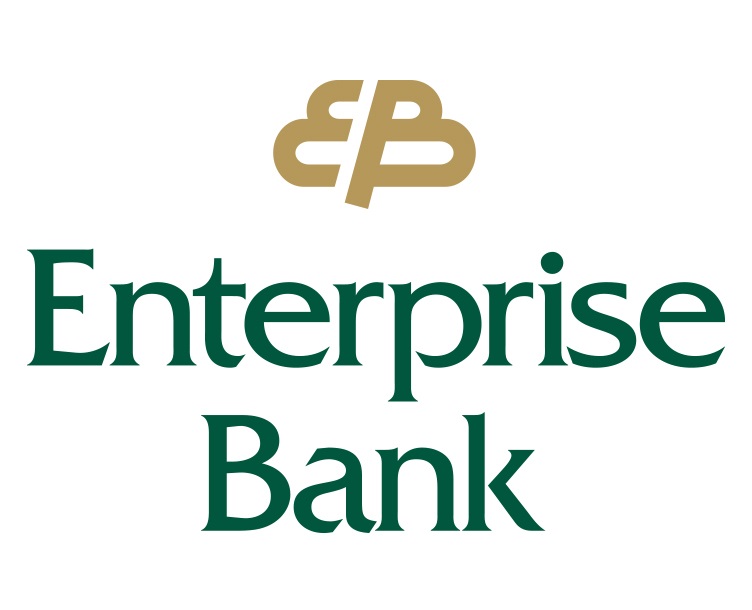This website uses cookies so that we can provide you with the best user experience possible. Cookie information is stored in your browser and performs functions such as recognising you when you return to our website and helping our team to understand which sections of the website you find most interesting and useful.

Enterprise Bank Powers Services to Foster Prosperous Communities with Microsoft Dynamics 365 CRM and Sikich
Enterprise Bank Powers financial Services to Foster Prosperous Communities with Microsoft D365 CRM and Sikich

Enterprise Bank decided it was time to replace an older customer relationship management (CRM) system for financial institutions. Because it needed a more powerful solution to manage service requests and other activities related to customers and prospects across all bank operations. The bank collaborated with Sikich to deploy Microsoft Dynamics 365 CRM technology for its financial services. As a result, comprehensive visibility of customer events were enabled and unified business processes were streamlined. The ongoing CRM journey and technology modernization will continue to unify Enterprise Bank’s technology landscape and improve the quality of services customers experience.
Community bank charts its digital strategy
Enterprise Bank is a community bank, founded in Lowell, MA during the economic downturn of the late 1980s to spur a recovery by providing locally managed comprehensive financial services. Today, the bank provides personal and business banking, wealth and investment management, and financial services for individuals, businesses and nonprofit organizations to customers in New Hampshire and Massachusetts.
As Enterprise Bank grew and its business groups became larger and more complex. It created a digital transformation roadmap for using technology to serve customers and achieve business goals. Leadership realized that the disparate software applications that enabled the bank to manage retail banking, commercial loans, consumer loans, and other parts of the business during its first decades could stand in the way of its continuing success. Enterprise Bank already used 360 View, a CRM software designed for banks and credit unions. However, executives wanted to give employees across the organization better access to customer information and provide more meaningful strategic reporting to decision-makers.
Collaborating with CRM and service experts
When Enterprise Bank evaluated technology providers and solutions, it connected with Sikich and had several exploratory conversations with the Sikich team. Next, Sikich performed a comprehensive review of the bank’s sales and service processes. Enterprise Bank needed a solution that could grow with the organization. Denise Veenstra, Vice President and Business Systems Support Manager at Enterprise Bank, says, “From the beginning, we had a trusting relationship with Sikich. We liked that the consultants understood and appreciated our community values and service goals. It was clear that they were technology experts who could help us address our concerns.”
Sikich CRM experts detailed a financial services approach to meeting the bank’s requirements centered on the capabilities of Microsoft Dynamics 365 CRM. Dynamics 365 would replace the client’s current CRM with a more robust financial services tool that would be easier to finetune to changing business requirements and which could integrate with the core banking system. Enterprise Bank already used and liked Microsoft SharePoint on-premises. Dynamics 365 CRM would be the organization’s first foray into the cloud. Leadership gave the green light for an implementation.
Denise Veenstra, Vice President and Business Systems Support Manager at Enterprise Bank, says, “From the beginning, we had a trust relationship with Sikich. We liked that the consultants understood and appreciated our community values and service goals. It was clear that they were technology experts who could help us address our concerns.”
Deploying CRM technology with workflow optimizations
Before Sikich deployed and configured the Dynamics 365 CRM solution, Enterprise Bank reviewed and streamlined many of its processes. This included cloning cases and service queues. The bank aimed to make these activities more efficient and improve customers’ service experience instead of simply transferring them into a new technology. The IT team also cleansed and deduplicated the bank’s data.
Once that was done, Sikich implemented Dynamics 365 Sales together with Dynamics 365 Sales Hub, which are both parts of Dynamics 365 Customer Experience (CE/CRM). Sikich enabled the bank’s customer – and services – related workflows to support process automation with custom entities and activities to support case management and other activities.
Summarizing her impressions of the new CRM system at the end of the implementation, Veenstra says, “The Dynamics 365 platform has the power, scalability, and flexibility we require in a CRM solution.”
Unleashing the bank’s data assets
During the project, the consultants migrated data from the existing CRM software into Dynamics 365. They used a SQL Server database to bridge the core banking software and Dynamics 365 Sales. At the end of every day, a complete set of customer and account data is automatically loaded into this database and from there into the Dynamics CRM system. In addition, CRM users can anytime, with a single click, receive current transaction data from the core system through a live feed. “Real-time integration between our core banking system and Dynamics 365 gives us a complete view of transactions,” Veenstra comments. “That makes the CRM system extremely useful and convenient for users, who don’t have to use several software tools.”
One of the most important achievements of the Sikich engagement is the ability to learn more from data to serve customers. Veenstra says, “Data is a key aspect of our business, and Sikich did a huge amount of work to help us benefit from our data assets. We’re extremely happy with the data flows, views, and jobs the consultants created to provide us with better visibility.”
“Real-time integration between our core banking system and Dynamics 365 gives us a complete view of transactions,” Veenstra comments. “That makes the CRM system extremely useful and convenient for users, who don’t have to use several software tools.”
A unified software environment to help customers
Today, close to 500 Enterprise Bank team members rely on Dynamics 365. These Dynamics 365 CRM users include wealth management representatives, branch relationship advisors, sales professionals, call center reps, deposit and loan administrators, special assets workout officers, compliance and risk managers, and security professionals both at corporate headquarters and in the branches as part of the bank’s financial services offerings. Currently accessing the solution through their desktop and laptop computers, they will soon have mobile access as well.
No longer needing to navigate disparate prospect tracking, sales, and service tools, bank associates can focus on serving customers and growing the business. The connection between Dynamics 365 and the core banking system enables a comprehensive, current view of customer data. It synchronizes account balance data and provides employees every day with updated information regarding new customer accounts. Both of these capabilities are critical in the interactions between customers and bank employees.
Data-fueled intelligence becomes pervasive
Once Enterprise Bank employees were comfortable with Dynamics 365 CRM, the bank asked Sikich to augment D365 with Microsoft Power BI. This enables more advanced, versatile analytics, reporting, and dashboards. The organization feels it made a wise decision in adding Power BI to deliver data insight and analytics capabilities to the business. “I should give kudos to Power BI,” Veenstra says. “It allows us to combine entities for reporting and gain the intelligence we need.” One example for improvements in business insight at the bank is understanding the flow of cases and the staffing levels needed to resolve them all in a timely fashion.
Stephen Irish, Chief Operating Officer of Enterprise Bank and Managing Director of Enterprise Wealth Management/EVP, adds, “Dynamics 365 together with Power BI allows us to significantly improve employee productivity and operational efficiency while delivering more advanced reporting to executives. Together, these solutions bring customer information into a consolidated, focused view. We can achieve greater business results and better serve both long-standing and new customers.”
Meeting information meaningful and visible
With guidance from Sikich, IT managers created custom-designed reporting dashboards for each bank department. Then, using Microsoft Power BI, they created additional dashboards for specific user requirements and embedded them in the Dynamics 365 capabilities. Veenstra explains, “Dashboards allow customer-facing and back-office teams to track the entities that matter most to them. In sales, for instance, dashboards highlight referrals, customer groups, the pipeline, and customer cases entered by a user with their current status. At a back-office level, they provide visibility of the cases in queue that expect attention. In addition, they draw our attention to specific case types with due dates. Overall, Dynamics 365 dashboards enable the departments to manage their caseloads and meet their service-level commitments.”
Veenstra explains, “Dynamics 365 dashboards enable the departments to manage their caseloads and meet their service-level commitments.”
Service continuity during the pandemic
During the pandemic, Enterprise Bank had to enable employees to work from anywhere in order to keep services going. “Dynamics 365 was fully ready for the challenges of the pandemic,” Veenstra notes. “That was one thing we didn’t have to worry about.” COVID-19 restrictions made it necessary to make some adjustments in how the bank managed documents. “By adding new case types and subtypes in Dynamics 365, we addressed these challenges and made it possible for our departments to exchange documents and route them to their final retention systems,” she adds. “These simple changes allowed our team members to work remotely, so we could keep them safe during the pandemic.”
Enterprise Bank recently deployed Microsoft Exchange in the cloud, which connects with Dynamics 365. As a result, employees have even better access to customer information. They will be able to use the Dynamics 365 App for Outlook to view account data from within their Outlook environment.
Augmenting CRM to boost service experience quality
Enterprise Bank continues to work with Sikich to add more advanced capabilities to Dynamics 365, including the Marketing and Customer Voice modules. Veenstra comments, “We are looking forward to running an effective customer onboarding campaign that will require automated marketing augmented by personal communications from our sales officers. Dynamics 365 Customer Voice and Marketing will play an important role in ensuring that customers are happy with our services.”
Following an assessment and strengthening of its cloud security, Enterprise Bank is updating its protocols for mobile and remote access to Dynamics 365 and its other software systems. Sales staff will then be able to make full use of Sales Hub on their smartphones.
Moreover, the bank anticipates additional integrations that will streamline processes for customers and employees:
- Integrating Dynamics 365 with the commercial lending system is going to surface commercial loans as opportunities in the CRM system, backed by applicable customer data.
- The IT team is also about to connect Dynamics 365 with the bank’s wealth origination system to allow CRM users to set up new accounts and manage disbursements.
- A Power App created by the team will route documents from Dynamics 365 to customers. An integration between Dynamics 365, SharePoint, and DocuSign eSignature software will allow them to sign documents on their preferred device. Enterprise Bank representatives receive the files and data back in their CRM and can save them in SharePoint folders.
“We are going to make many processes easier by digitizing them,” Veenstra concludes. “With digital copies of all our files and audit logs for document exchanges, we can be more efficient and keep data and documents secure.”
ENTERPRISE BANK SUCCESS HIGHLIGHTS
- Increased visibility into customer activity
- Streamlined and unified business processes
- Access to meaningful data
- Remote work enabled




